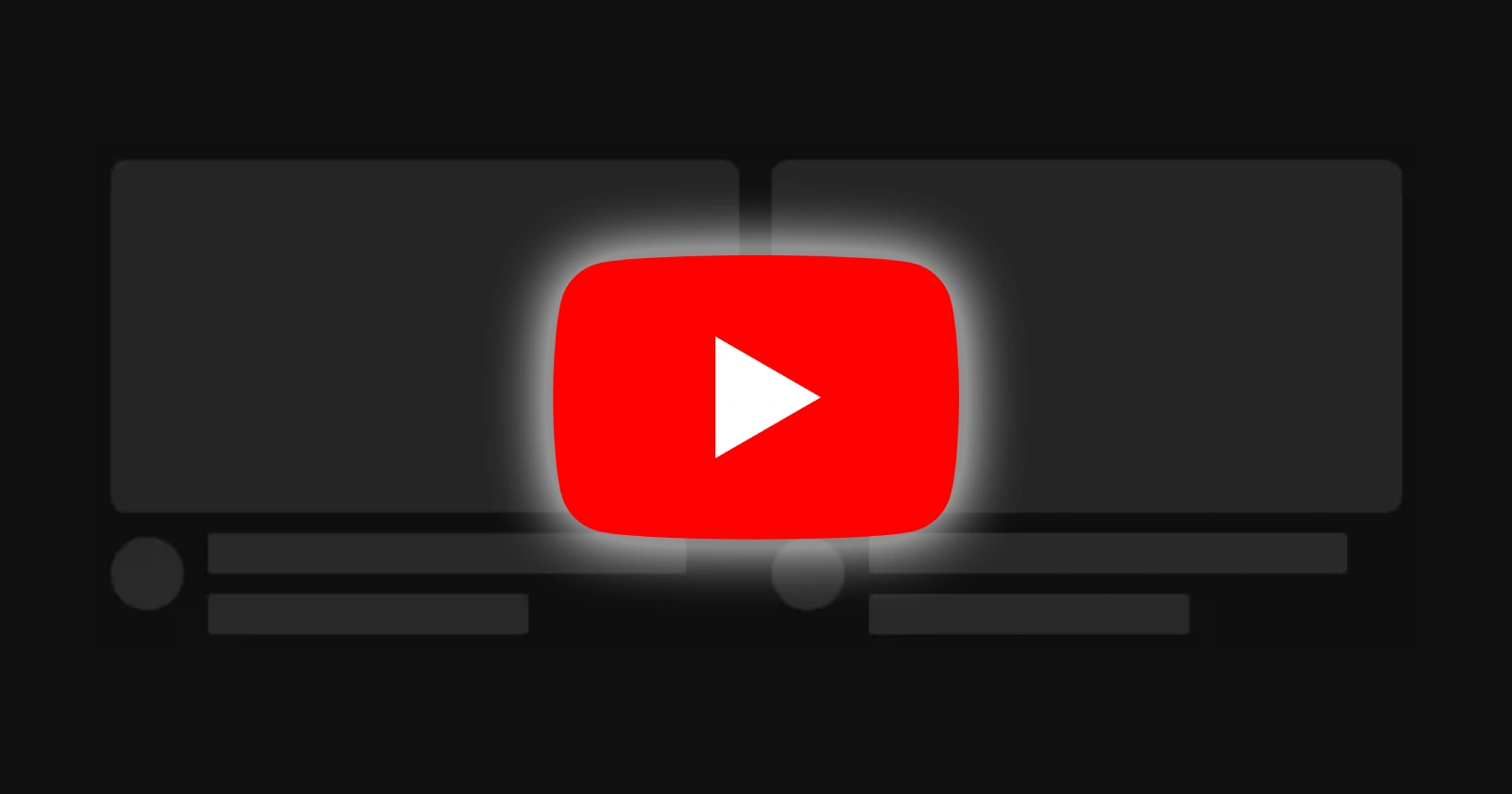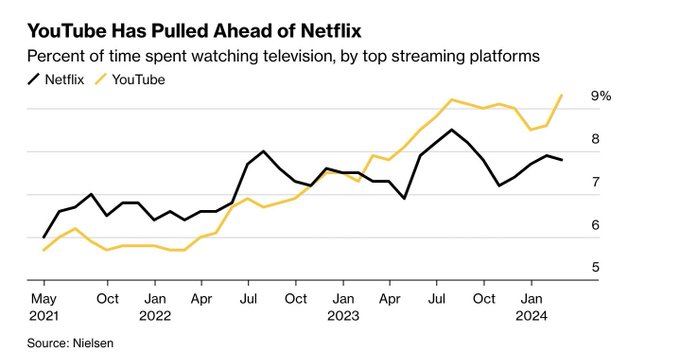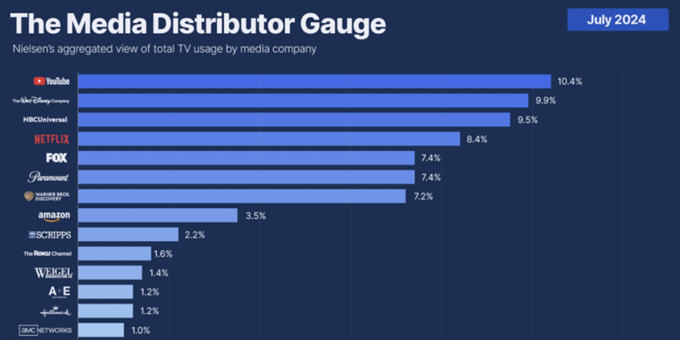Stop chasing Netflix and just be YouTube
— Marques Brownlee (@MKBHD) October 28, 2024
YouTube is stirring things up with a new experiment: a homepage without view counts or upload dates. It’s bold, maybe even a bit brazen — potentially the biggest UI overhaul since the dislike count was axed. And it’s got people talking. The move appears to mimic streaming giants like Netflix, whose shows rarely highlight views or upload dates. But is this approach the best move for YouTube? Not everyone thinks so.
Tech influencer MKBHD weighed in, urging YouTube to “stop chasing Netflix and just be YouTube.” His comment struck a chord with some of us who indeed feel YouTube has been on a path of endless imitation, pulling elements from every trendy platform out there.
YouTube’s “chameleon” strategy is nothing new. YouTube has a knack for borrowing features from any platform it deems successful. They’ve snapped up elements from TikTok, Instagram, and even Spotify — yet it’s steered clear of emulating the likes of Twitch, which has struggled in recent years. Now, with this latest test removing view counts and dates, it feels like YouTube’s eyeing Netflix. So, why Netflix?
YouTube has the numbers to back it up
Let’s be real. If any platform has earned the right to mimic Netflix, it’s YouTube. According to Nielsen, YouTube recently surpassed Netflix in terms of total TV screen time. More people are watching YouTube on their TVs than any other streaming service, making it the reigning champ of the streaming game. A quick glance at the numbers from January 2024 shows YouTube pulling ahead with 9% of all TV viewing, surpassing Netflix’s 7.4%. And in July, YouTube soared even higher, taking a commanding 10.4% share, placing it above traditional media giants like Disney and NBCUniversal.
If YouTube is going to embrace its new status as the “Netflix of the internet,” perhaps they feel justified in taking a page out of the Netflix playbook.
The backlash to YouTube’s experiment highlights how deeply users value view counts and upload dates, and why these metrics matter for both viewers and creators. The consensus? This isn’t the kind of improvement people were hoping for.
For many users, view counts and dates are essential tools for navigating YouTube’s vast library of content. These change feels like YouTube taking away information. Dislikes are already gone, and for some, that made it harder to avoid clickbait or poorly made videos. Now, with view counts and dates potentially on the chopping block, users worry they’re losing even more of the context they rely on to quickly find relevant or trending content.
For example, one user pointed out the importance of dates, especially when searching for information on evolving topics: “Having a more recent video on a topic is really important a lot of the time.” And it’s not just viewers who rely on this info — creators, especially smaller ones, find it valuable too. Some worry about how the lack of view counts might affect the visibility of up-and-coming channels. “YouTube does tons of random experiments like this,” one user noted, “so I’m curious how hiding view counts helps or hurts small channels if at all.”
Is YouTube a hub for all creators or just another Netflix?
YouTube has long prided itself on being a hub for every creator, from independent vloggers to major studios. Yet, the platform’s rapid growth has brought a wave of changes that, to some, make it look less like YouTube and more like “traditional” streaming platforms. We’ve seen new features like AI-powered comment replies, changes in the miniplayer layout, and even tests for “Premium Lite” subscriptions with fewer ads.
On top of that, YouTube has become more aggressive with ad placements, but some still argue that “YouTube is the new Hollywood. YouTube is the new Netflix.” While this might sound like an accolade, MKBHD’s comment suggests a reality check: YouTube is YouTube, and chasing Netflix could mean losing what made it unique in the first place.
In ongoing online discussions, many users are openly skeptical — if not outright dismissive — of YouTube’s rationale for hiding this information. “This is the stupidest thing I’ve ever heard. What’s next, remove the creator’s name too?” asked one commenter, capturing the exasperation shared by others who feel that YouTube frequently “fixes” things that aren’t broken.
Brave browser sarcastically noted, “Definitely the top thing they should work on,” hinting at the many issues — like too many ads or spam in comments — that users wish YouTube would address first. And, as one user quipped, “You know this isn’t what people call ‘improvement,’ it’s basically downgrading it to the point of ‘what the hell is going on.’”
Definitely the top thing they should work on 🥴 pic.twitter.com/brpg6ARg8L
— Brave (@brave) October 28, 2024
Critics argue that YouTube is ignoring the obvious: that people judge videos based on view counts and dates for a reason. As one user put it, “View count AND date posted together at a glance keeps you from watching outdated content or helps you find trending content.” The streamlined experience YouTube seems to be aiming for with this experiment might work for Netflix-style scripted content, but YouTube is a platform known for its raw, real-time content and variety.
As YouTube tests this new direction, it faces a choice: keep leaning into the appeal of mainstream streaming or refocus on the core aspects that make it stand out from the pack. The platform’s ever-expanding suite of features — from TikTok-inspired Shorts to Spotify-like podcasts — shows YouTube’s versatility and ambition. But there’s a fine line between being versatile and losing your identity.
Ultimately, YouTube is a different beast from Netflix. It’s a place where anyone, from a kid with a smartphone to a Hollywood studio, can share content with the world. By chasing Netflix’s playbook, YouTube risks dulling its unique edge, and as MKBHD wisely put it, sometimes it’s better to embrace what you are than to chase what you’re not.
TechIssuesToday primarily focuses on publishing 'breaking' or 'exclusive' tech news. This means, we are usually the first news website on the whole Internet to highlight the topics we cover daily. So far, our stories have been picked up by many mainstream technology publications like The Verge, Macrumors, Forbes, etc. To know more, head here.




